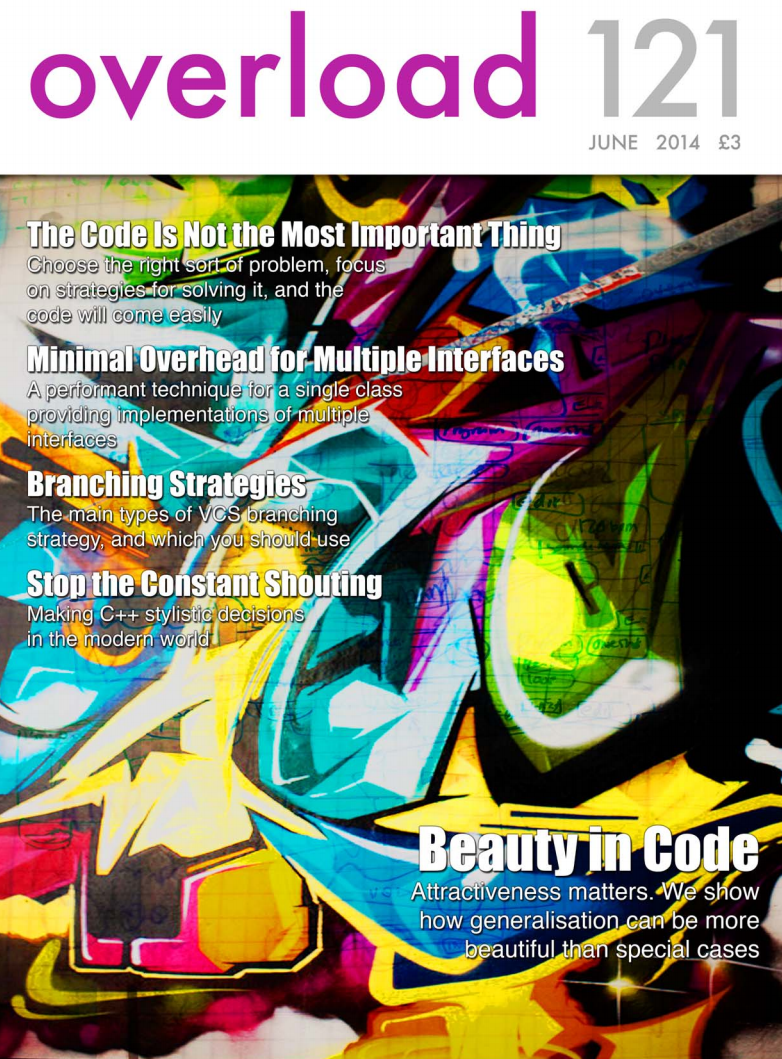Ref-qualifiers -- Andrzej Krzemieński
The latest from the desk of Andrzej:
Ref-qualifiers
by Andrzej Krzemieński
From the article:
In this post I want to describe a small language feature added in C++11 that, although essential for full value semantics support, is often neglected in tutorials and in compiler implementations....

 Overload 121 is now available. It contains the following C++-related articles, and more:
Overload 121 is now available. It contains the following C++-related articles, and more: More CppCon 2014 accepted talks have just been announced, below. For past announcements about the conference program, s
More CppCon 2014 accepted talks have just been announced, below. For past announcements about the conference program, s